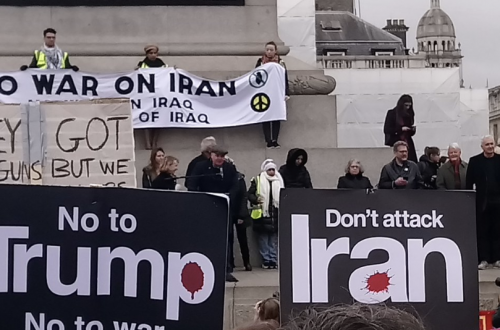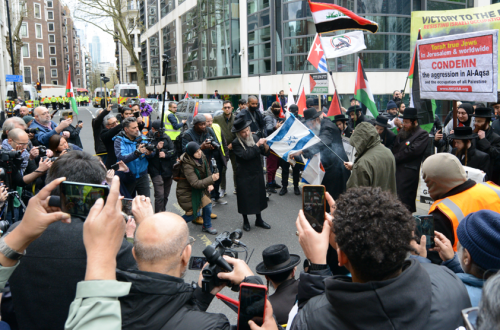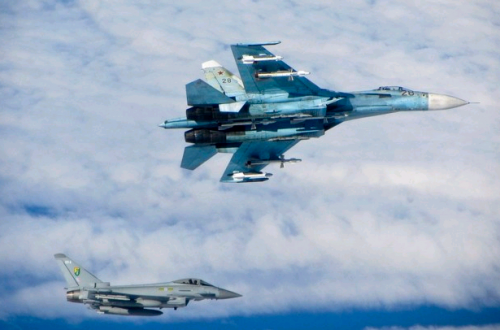This is a cross post by Marc Goldberg from The Times of Israel
The Judean Desert stretched out for miles before me. The mountains and deep ravines that seemed to stretch of endlessly gave me the feeling of being on the set of a spaghetti Western (or perhaps a lukshon one). There were animals all around me and on the hilltop in front I could see the settlement of Nokedim, home to Avigdor Liberman. To my left are a couple of goats whose milk is being used to make cheese and just in front of me are a couple of small cabins that my friend Forrest and his brother built by themselves. I’m standing in a vegetable patch where eggplant, carrots and a range of other vegetables are being grown. Just in front of the cabins sit a few caravans where people live while awaiting permission from the government to build permanent homes on the land. There is no fence here, a fence will only fence you in and the mentality here is to move forward, to break new ground, not to be held back.
We had driven drove from Forrest’s flat in Jerusalem to get there. On the way he pointed out the Arab Supermarket where all the Jews go on Shabbat, the street populated on one side by religious Jews and on the other by Arab families. We see the Har Homa neighbourhood on our way out of the city and then immediately see Bethlehem too. The distance between them is so small you could probably throw a rock from one to the other. I was looking out for the separation wall as we moved over the Green Line but I couldn’t find it, after a couple of minutes I saw not the big wall the image of which has become so famous but a double line of fences. I saw it while we were driving through the checkpoint that marked the crossing from Israel into the West Bank.
We drove past Palestinian villages with their flat roofs and minarets, we drove past cars with green Palestinian license plates and others with Israeli yellow ones until we arrived at Tekoa. The big yellow gate opened after Forrest gave a friendly wave to the guard and headed straight for his parent’s place. Along the way Forrest told me about Tekoa B and C which surprised me as I hadn’t realized just how big the settlement was. There are several hundred families living there and more people are moving there all the time.
After taking in the views around Forrest’s family home we left while they went to synagogue and we visited his friend Danny’s house. We walked in and I was immediately greeted as a long lost friend by people I have met maybe two or three times in my life. “Marc how are you? What have you been up to? How has it taken you so long to come and visit?” I’m overwhelmed by their warmth and by their hospitality. Danny’s parents moved to Israel from the USA and have lived in Tekoa for years now, they raised their three children there one of whom is offering me a beer after embracing me like I’m his brother. Other people from the neighbourhood are there too, people with whom Forrest grew up. Everyone is incredibly warm and welcoming and everyone is wearing a glock on their hip. I am in frontier country.
Sitting down on their comfortable leather sofa I felt a sense of kinship with these people. All of them served in the army in combat units, all of them are instinctively warm and friendly and all of them were raised in Tekoa. There are English books and periodicals scattered all over the richly furnished living room and not a television in sight, a healthy fire was burning in the hearth. The sound of New York accents was coming from the kitchen, where the Friday night meal was being made and that was when the realization that I had far more in common with these people than I had ever understood hit me like a bullet.
After 40 minutes or so of chatting we say Shalom to one another since Danny and his wife have to drive to Herzliya Pituah for Shabbat. Two more different worlds I found it difficult to imagine. Everyone always talks about the settlements being only minutes from Jerusalem but no one ever talks about how you can go from deep in the West Bank to the Mediterranean coast in an hour. In doing so you are driving from a place where people live in the desert and carry guns to the lavish wealth of Israel’s coastline, where instead of carrying guns for protection people carry condoms. We went back to Forrest’s family home.
Forrest’s family weren’t back from synagogue yet so we waited in the cabin with his youngest sister, she’s 10 and one of Forrest’s 10 siblings. He told me that the family had lived in another house when he grew up but that they had moved from there further to the fringe of Tekoa in order to expand the limits of the settlement. One by one Forrest’s brothers and sisters returned home, only 5 of the 11 children sat around the table that night and I found it difficult to get over just how alike they all looked.
Dinner consisted of fish and vegetables grown in the garden, they were self-sufficient in almost every way and I got the impression that it was important for them that that was the case. The cabin was Spartan, the kids share rooms and the furniture is rough and ready. It was the perfect place to bring up tough and self-confident kids, this description fits Forrest perfectly. During the evening the talk turned to the rockets that flew from Gaza and then moved to the new Likud list and then on to how there aren’t any ministers in the government willing to take responsibility for making the country a better place to live in, we talked about lots of things. The conversation flowed well and went well beyond polite conversation made by strangers. The truth is I wasn’t a stranger at that table, I had served in the army with Forrest, they made me feel like I was part of their family.
The next day we went abseiling just beyond the edge of the settlement. The descent was about 100 meters away from where Koby Mandell and Yosef Ishran were murdered when they were 13 and 14 years old respectively. They had cut school for the day and were hiking near the settlement, their broken bodies were found in a cave nearby, no one has since been charged with the crime. I roped over 100 feet down the sheer cliff face and stared out at the view of the Judean Desert as I did so. I couldn’t see any habitation at all, just the desolate beauty of our ancestral home for as far as the eye could see.
There were about 10 of us, we trekked and made coffee and ate and messed around and when we were done we drove for 20 minutes back to Jerusalem. On the drive back we passed the same villages, as the day before, we drove past Arabs and Jews and the checkpoint manned by soldiers who let us back into Israel proper with a nod of our Ashkenazi heads. I saw Bethlehem again and I saw cranes on the Jerusalem skyline building, I saw the street with Arabs on one side and Jews on the other and the supermarket that is packed every weekend.
The people I met in Tekoa are people possessed of the very same fire in their souls that brought me to Israel. Intelligent people, good people, people who were happy to invite me into their homes and extend to me the warmest of welcomes. While there I felt that the same spirit that had caused Jews to form H’Shomer H’tzair and the Palmach was alive and well in these people. They are the true Zionists, the ones who continue to settle the land and live surrounded by enemies. They live on the frontier and the atmosphere there reflects that. They bring their children up to be tough, confident without being arrogant, they consider themselves to be the vanguard of Israel and in many ways they are.
Were we still fighting the war for our country I would be living there with them, but that war was fought and won and then fought and won again.
And now the world is focussed on something called the E3 corridor, a place I had never heard of until the other day and I am sure that neither had 99% of the people now talking about it. The truth is this isn’t about the new houses being built today or yesterday, it’s about an Israeli struggle between two opposing views. On the one hand lies the view that stresses looking at reality over ideology and the other that stresses precisely the opposite.
My views have not changed because of the weekend that I spent in Tekoa. Having said that I have come to realise that settlers aren’t my enemy and I am not theirs. We love this country in equal measure and are trying to do what we see as being the best for it. I cannot criticise those obeying the law of the land, I can’t criticise those who have put their lives on the line for what they believe in, in many ways I respect them for it.
What my visit most brought home to me most of all was the extent to which we are all one people. Danny’s drive from Tekoa to Herzliya Pituah summed it up perfectly, there may be two different experiences in different parts of the country but this is still one country and the citizens living in the West Bank are amongst the most loyal of all.
It is the settlers who we depend upon the most for a final status agreement, they are the ones who stand to lose everything that they have spent years building should an agreement be signed. In the event of a withdrawal from the West Bank I will be cheering, but I won’t have had to make any sacrifices for it to happen, it’s Forrest’s family and friends who will be forced to pay the price required for a lasting solution and we should forever be mindful of that whilst campaigning in favour of a lasting peace with the Palestinians.


